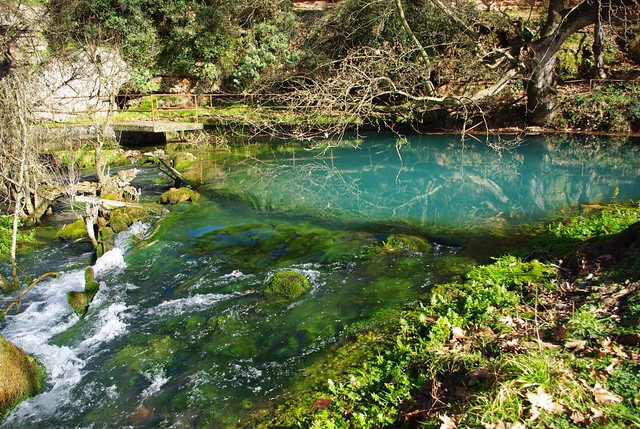“Talent is only the starting point.”
AUTHOR: Irving Berlin
MEANING OF THE QUOTE:
"Talent means nothing without a good
work ethic and a good attitude.”
COMPOSER


Pan and Syrinx
By Lewis Gidley
The nymph Syrinx ran
From Goat-footed Pan,

Who sought the coy beauty to gain;
Through grove, over lawn,
Like a startled fawn,
In the haunts of the shepherd swain.
Her long yellow hair,
From her forehead flair;
Stream’d back, as she hasten’d her flight,
Like a cloud that flies
Through the wind-swept skies,
or a swift comet’s trail of light.

Large heat-drops bedew’d
Her brow, when the flood
Of Ladon she reach’d,
Which arrested,
With its silver sheet,
Her uncertain feet
Whose, speed so rudely been tested.
On each Naiad sister
She call’d, to assist her,
Thus asking them succor to give her;
“O grant me escape,
By changing my shape,
Ye Nymphs of the fountain and river!”
They heard, and the prize
Was snatch’d from the eyes
Of Pan, at the end of the race;
For, greatly dismay’d,
He seized not the maid,
But only some reeds in her place.
“Ah, cheat!” then he cried;
But the reeds replied,
With murmurs, reproving his error;
And still as they trembled,
Their shaking resembled
The shuddering emotion of terror.
But some consolation,
To soothe his vexation,
Pan found in a pipe which he made
Of the reeds, to blow
On whose wax-join’d row,
Was his solace in grot and glade.


The nymph (also meaning girl) is a nature spirit,
she is portrayed as a beautiful and attractive
READ THE STORY HERE
Heritage History
http://www.heritage-history.com/index.php?c=read&
author=langjean&book=myths&story=syrinx
Syrinx:
The story of Syrinx, the reed,
as Ovid has told it.
MEANING OF THE QUOTE:
"Talent means nothing without a good
work ethic and a good attitude.”
COMPOSER
DEBUSSY
For Solo flute
| La Flute by Berthon |
Emmanuel Pahud, Flute
Jean-Pierre Rampal, Flute
 |
| Marc Chagal: Syrinx Fable |
Sarah Bassingwaithe, Flute
Originally called Flûte de Pan, "Syrinx"
was intended to provide atmospheric
background music to an uncompleted
play, Psyche, by Gabriel Mourey.
| Syrinx into a Reed or Pane e Siringa, Book I, Illustration from Ovid's Metamorphoses, Florence, 1832 |
In Greek mythology the Syrinx was an Arcadian nymph,
who, being pursued by Pan, fled into the river Ladon,
and at her own request was metamorphosed into a
reed in order to hide from Pan. Unable to locate her
Pan was only able to get his hands on the reeds.
Noticing the plaintive notes produced by these
through his sighs of desperation Pan cut the reeds
down, using nine pieces to fashion himself a pipe
to play, creating the instrument, he named the
Syrinx, after her.
| John Martineau: The Arcadian Nymph Syrinx |
 |
| Arnold Böcklin: Syrinx fleeing from the onslaught of Pan |
 |
| Ladon River |
 |
| Naiads (Naeids) |
 |
| Noel Nicolas Coypel: Pan and Syrinx,1690 |
| Edmund Dulac |
| http://www.heritage-history.com/index.php?c=read& author=langjean&book=myths&story=_front |
 |
| Walter Crane: Pan and Syrinx |
| Bocklin, Arnold: Pan in the Reeds |
| English Poet John Keats (1795-1821) Tells the story of Pan and Syrinx |
| So did he feel who pulled the bough aside, That we might look into a forest wide, Telling us how fair trembling Syrinx fled Arcadian Pan, with such a fearful dread. Poor nymph- poor Pan- how he did weep to find Nought but a lovely sighing of the wind. Along the reedy stream; a half-heard strain, Full of sweet desolation, balmy pain. |
| Arnold Bocklin |
| Maxfield Parrish: The Errant Pan |
The nymph (also meaning girl) is a nature spirit,
immortal or at least with a long life who, as a
prophetess or a holder of knowledge, acts as a
mediator between the Gods and man. Often
young woman tied to a natural phenomenon
[mostly linked to pleasant and benevolent
aspects of nature (apart from a few
exceptions)] or a particular place,
perhaps a countryside,
but not always.
| Gaston Bussière: Nymph with Iris, 1911 |
| Robert Poetzelberger: Wood Nymph, 1886 |
| Sophie Anderson: The Head of a Nymph |
http://www.heritage-history.com/index.php?c=read&

.jpg)